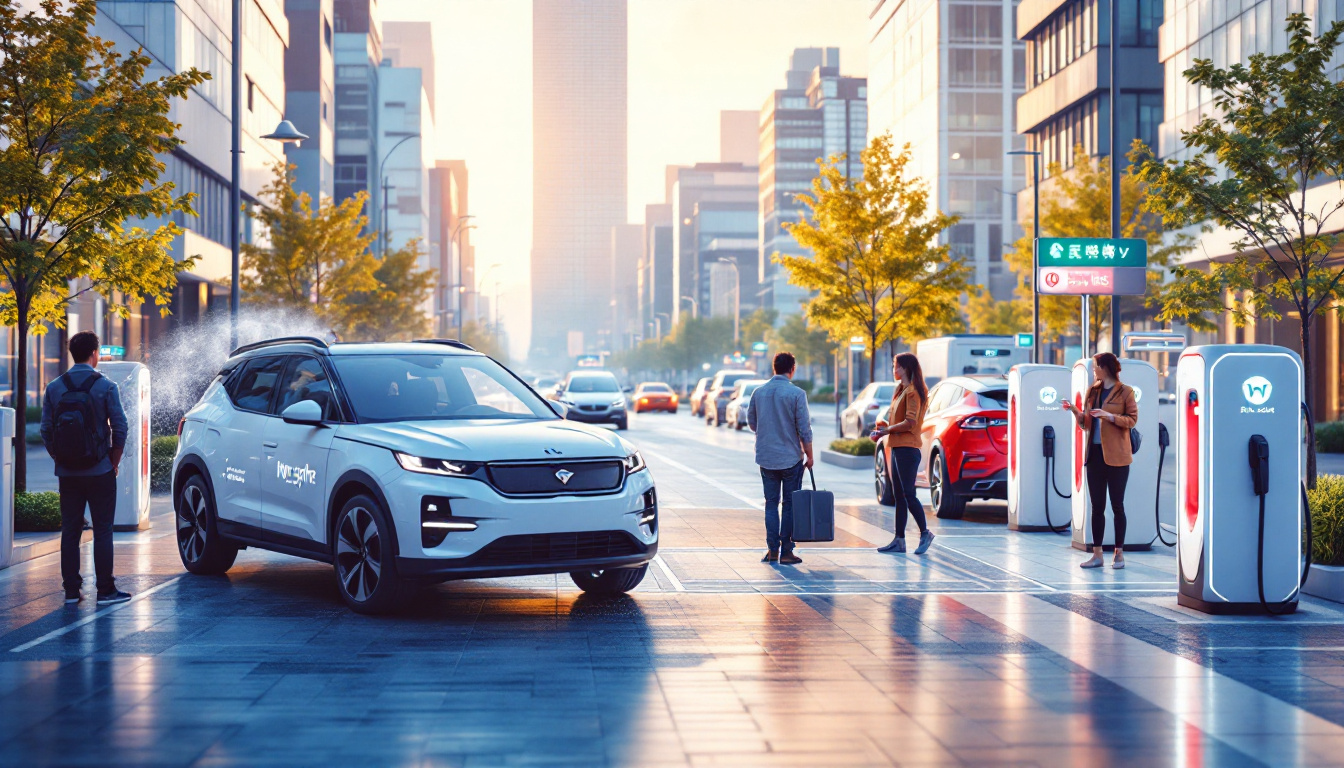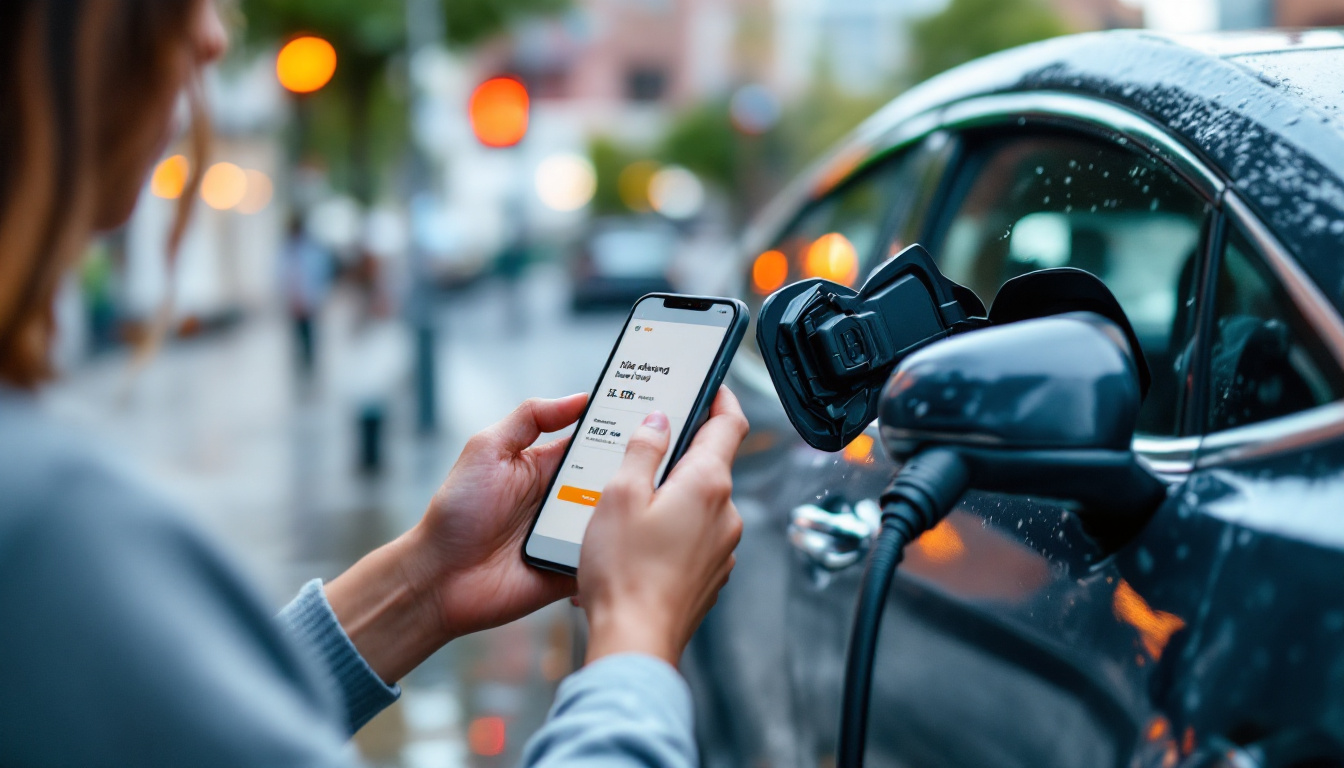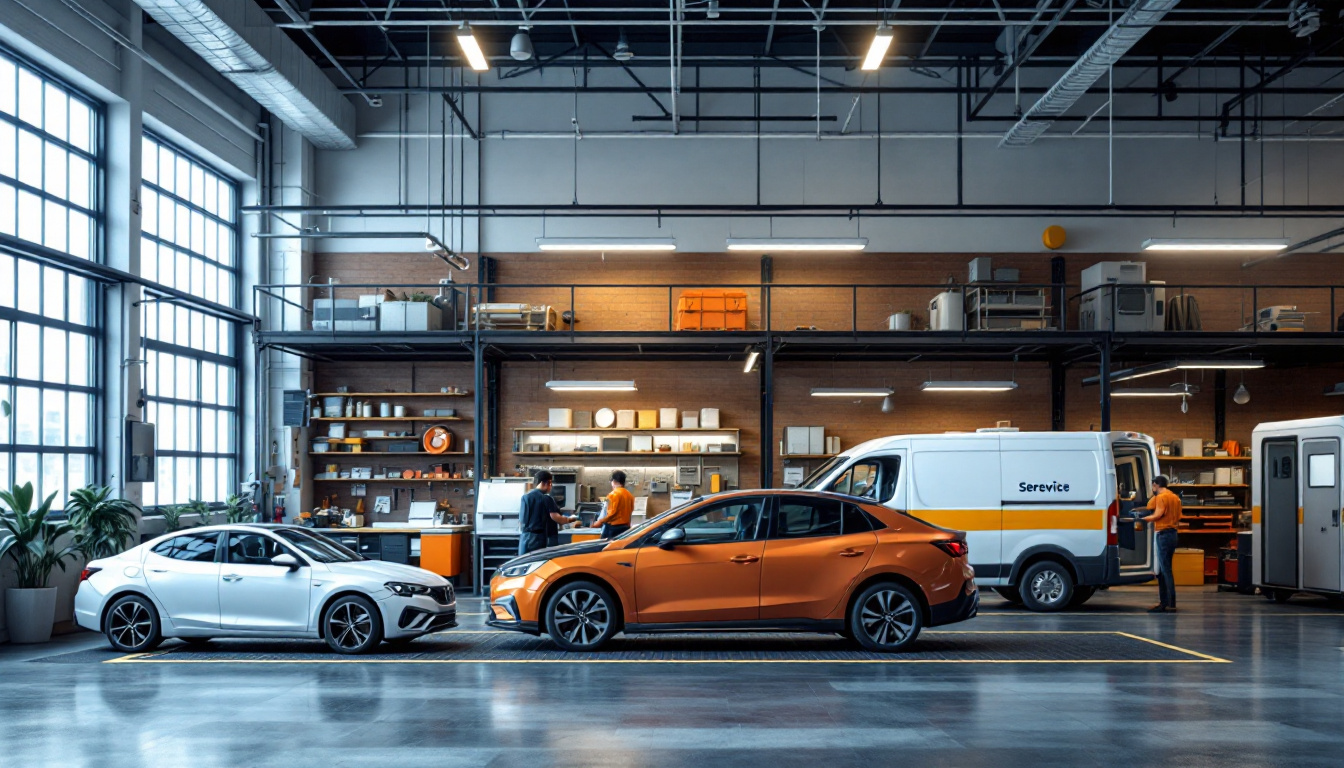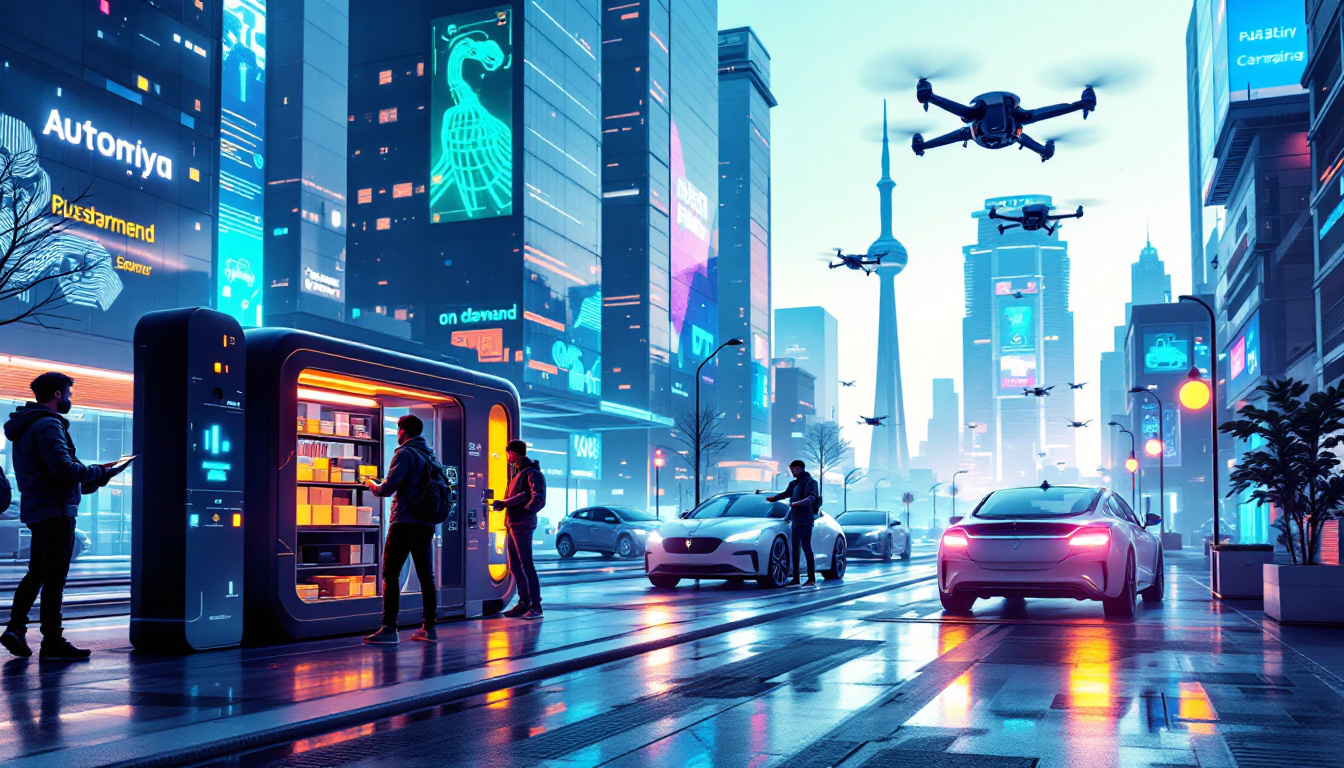The Rise of On-Demand Automotive Services
Explore the transformative impact of on-demand automotive services in today's fast-paced world.
Published Sun, 15 Dec 2024 00:00:00 GMT

In recent years, the automotive industry has seen a significant shift towards on-demand services. This evolution is reshaping how consumers interact with automotive services and changing the landscape of vehicle maintenance, cleaning, and fuel delivery. In this article, we will explore the intricacies of on-demand automotive services, the driving forces propelling their rise, various types of these services, their impact on traditional automotive providers, and future trends.
Understanding On-Demand Automotive Services
Definition and Scope of On-Demand Automotive Services
On-demand automotive services refer to the immediate availability of automotive solutions tailored to consumer needs. These services typically allow users to request assistance utilizing mobile applications or online platforms, providing convenience and efficiency. Examples include mobile car washes, roadside assistance, and on-call mechanics.

As technology has progressed, the scope of on-demand services has expanded. Now, customers can access various services from the comfort of their homes, scheduling appointments at their convenience. This immediacy has changed consumer expectations, driving a demand for greater flexibility and responsiveness from service providers. Additionally, the integration of real-time tracking features allows customers to monitor the status of their service requests, enhancing transparency and trust in the process. This level of engagement not only improves user satisfaction but also fosters a sense of community among service providers and their clientele, creating a more personalized experience.
The Evolution of Automotive Services
The evolution of automotive services can be traced back to the rise of the automobile itself. Over the years, traditional service models relied heavily on fixed locations where customers transported their vehicles for necessary maintenance and repairs. However, the emergence of the gig economy has led to innovative changes in how these services are delivered.
On-demand services have gained traction, propelled by the increasing use of smartphones and mobile apps, allowing service providers to reach their customers instantly. This transformation is a significant leap from the traditional service model, promoting customer-centric approaches and new methods for businesses to engage and retain clients. Furthermore, the advent of advanced technologies such as artificial intelligence and machine learning has enabled service providers to analyze customer data, predict service needs, and offer tailored solutions. This proactive approach not only enhances operational efficiency but also empowers customers with insights into their vehicle’s health, fostering a more informed and engaged consumer base. As the automotive landscape continues to evolve, the integration of these technologies will likely pave the way for even more innovative service offerings, reshaping the future of automotive care.
The Driving Forces Behind the Rise
Technological Advancements and Automotive Services
Technological advancements, particularly in mobile technology and digital connectivity, have been key drivers of the rise in on-demand automotive services. Innovations such as GPS tracking, real-time notifications, and enhanced communication channels aid both customers and service providers. This technology enables faster service delivery and better overall user experience.
Moreover, the development of user-friendly applications has simplified the process of booking automotive services. With just a few taps, consumers can request services, track their provider, manage payments, and leave feedback, creating a seamless service experience that caters to modern consumer expectations. These applications often come equipped with features such as service history tracking and reminders for routine maintenance, further enhancing user engagement and satisfaction. As these platforms continue to evolve, they are likely to incorporate advanced technologies like artificial intelligence and machine learning, which can predict service needs based on driving habits and vehicle performance, thus providing an even more personalized experience.
Changing Consumer Behavior and Expectations
Today’s consumers prioritize convenience, often seeking services that fit into their busy lifestyles. There is a growing desire for immediate gratification, pushing consumers towards solutions that require minimal effort and time investment. This has prompted businesses to adapt their strategies to meet these evolving preferences, offering services that align with consumer expectations. The rise of subscription models in automotive services is a testament to this shift, allowing customers to enjoy hassle-free access to maintenance and repairs without the need for constant rebooking.
This change in behavior underscores a broader trend toward personalization and accessibility. Customers increasingly demand that services be tailored to their individual needs, whether it’s the option to choose a specific time for vehicle cleaning or the ability to prefer certain technicians for repairs. Additionally, the emphasis on sustainability is influencing consumer choices, with many seeking eco-friendly service options that utilize green products and practices. This growing awareness not only reflects a shift in consumer values but also presents an opportunity for businesses to differentiate themselves in a competitive market by adopting sustainable practices and promoting their commitment to environmental stewardship.
Different Types of On-Demand Automotive Services
Mobile Car Wash and Detailing Services
Mobile car wash and detailing services represent a popular on-demand option. By offering cleaning services at the consumer’s location, these businesses save customers time and effort. Users often appreciate the convenience of having their vehicles cleaned while they attend to other matters, such as work or errands.
These services frequently utilize eco-friendly products, catering to environmentally-conscious consumers who prioritize sustainability without compromising on convenience. Additionally, some providers offer subscription models, allowing customers to schedule regular cleanings effortlessly. This not only ensures that vehicles remain in pristine condition but also helps customers manage their budgets by providing predictable pricing for ongoing services.
Moreover, mobile detailing services often include a variety of packages tailored to different needs, from basic exterior washes to comprehensive interior deep cleaning. Some businesses even offer specialized services like headlight restoration or paint protection, ensuring that every aspect of the vehicle is well cared for. As technology advances, many of these services are now available through user-friendly apps, making it easier than ever to book a cleaning at the touch of a button.
On-Demand Car Repair and Maintenance
On-demand car repair and maintenance services have gained increasing popularity. Mechanics can be dispatched to clients’ locations to carry out minor repairs or maintenance tasks, such as oil changes or tire rotations. This service model allows customers to minimize downtime and avoid the hassle of driving to a workshop.
Furthermore, many of these services provide detailed online diagnostics, allowing customers to understand their vehicle’s condition before any work begins. This transparency fosters trust and enhances customer satisfaction. In addition, some platforms offer a network of certified mechanics, ensuring that customers receive high-quality service from experienced professionals who can handle a variety of makes and models.
In many cases, these on-demand services also come equipped with mobile payment options, enabling a seamless transaction process. Customers can receive real-time updates on the status of their service, including estimated arrival times and progress reports, which adds an extra layer of convenience and peace of mind. As the industry continues to evolve, we can expect even more innovative solutions that cater to the specific needs of car owners.
On-Demand Fuel Delivery Services
Fuel delivery services are emerging as another innovative solution in the on-demand automotive landscape. These services allow users to order fuel delivered directly to their vehicles, addressing the common problem of running out of gas. This is particularly beneficial for those who lead busy lives or find themselves stranded without nearby gas stations.
By eliminating the need to drive to a gas station, these services save time and effort, enhancing the overall driving experience. With increased convenience, consumers can focus on their daily activities without worrying about fuel shortages. Many fuel delivery services also offer competitive pricing and loyalty programs, incentivizing repeat customers and providing additional savings over time.
Additionally, some companies are integrating advanced technology into their platforms, allowing users to track fuel delivery in real-time and receive notifications when their fuel is on the way. This level of service not only enhances customer experience but also ensures that drivers can plan their schedules more effectively. As urban areas become more congested and the demand for convenience grows, on-demand fuel delivery is likely to become an essential service for many consumers, further transforming the automotive landscape.
The Impact on Traditional Automotive Services
Challenges for Traditional Automotive Service Providers
The rise of on-demand automotive services presents several challenges for traditional service providers. Many established businesses struggle to keep pace with the growing consumer demand for immediate and accessible services. These challenges encompass longer wait times, limited service options, and outdated business models.
 Additionally, the emergence of technology-driven platforms raises the competitive stakes, forcing traditional providers to innovate or risk losing customers. Many service providers now find themselves in a race to adopt new technologies and develop their online presence to remain relevant in a changing market.
Additionally, the emergence of technology-driven platforms raises the competitive stakes, forcing traditional providers to innovate or risk losing customers. Many service providers now find themselves in a race to adopt new technologies and develop their online presence to remain relevant in a changing market.
Opportunities and Adaptations for Traditional Service Providers
Despite these challenges, the rise of on-demand services also presents opportunities for traditional automotive service providers. By embracing new technologies and integrating them into their operations, established businesses can enhance their service offerings and improve customer retention.
Moreover, adapting to these trends can drive innovation and competitiveness. Traditional providers that adopt mobile applications for bookings, offer subscription services, or provide a blend of on-demand and traditional services can thrive in this evolving landscape.
Future Trends in On-Demand Automotive Services
Integration of AI and IoT in On-Demand Services
As on-demand automotive services continue to grow, the integration of artificial intelligence (AI) and the Internet of Things (IoT) will likely play a critical role. AI can facilitate predictive maintenance, allowing service providers to anticipate issues before they arise through advanced data analysis.
 Similarly, IoT-connected devices can improve service delivery by providing real-time vehicle data to service providers. This technology can streamline the repair process, ultimately leading to faster and more efficient service experiences for consumers.
Similarly, IoT-connected devices can improve service delivery by providing real-time vehicle data to service providers. This technology can streamline the repair process, ultimately leading to faster and more efficient service experiences for consumers.
Sustainability and On-Demand Automotive Services
Finally, sustainability is expected to become a focal point for on-demand automotive services in the coming years. As environmental concerns continue to rise, service providers that prioritize eco-friendly practices and sustainable solutions are likely to gain a competitive edge.
This could involve using biodegradable cleaning products, employing fuel-efficient or electric vehicles for service delivery, and promoting practices that reduce carbon footprints. Ultimately, the future landscape of on-demand automotive services will hinge on balancing convenience and sustainability, creating a more responsible industry.